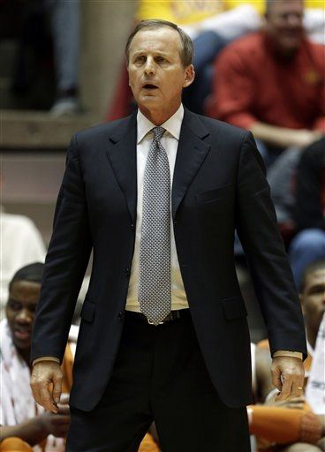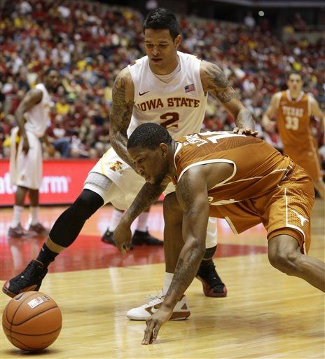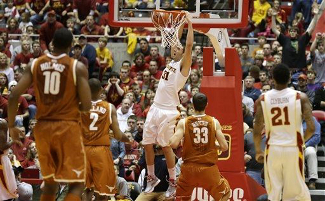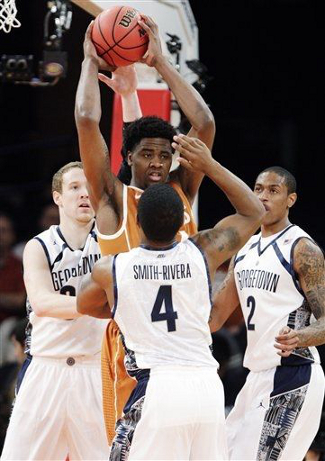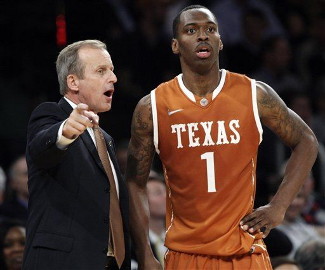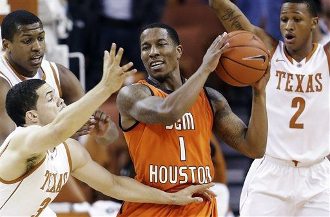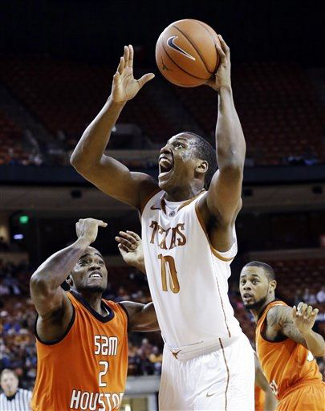#20/19 Michigan State Spartans 67, Texas Longhorns 56
In front of a raucous crowd of nearly 15,000, the young Texas Longhorns faced their first true road test of the season in East Lansing yesterday afternoon. While they didn’t escape the Breslin Center with an improbable win, the team responded to adversity and battled down to the final minutes in a game that was much tighter than the final score indicated.
The Horns came out of the gate very shaky, hitting just one of their first nine shots, with the make coming on a simple stickback by Jonathan Holmes. Texas turned it over five times in the team’s first ten possessions, giving fans flashbacks to the disastrous start against Georgetown in New York. After eight minutes of play, the Horns had already fallen behind 12-4 and had gone more than seven minutes without a field goal.
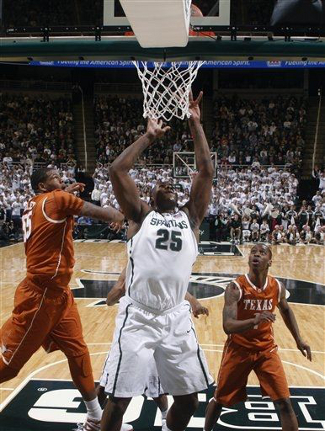
The Texas frontcourt could not contain Derrick Nix
(Photo credit: Al Goldis/Associated Press) 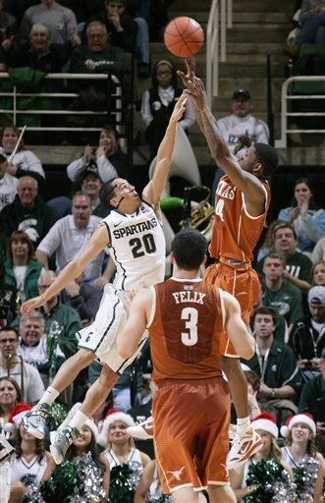
Julien Lewis came up big in the second half
(Photo credit: Al Goldis/Associated Press) 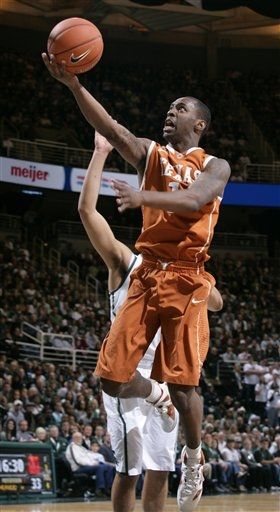
Sheldon McClellan was mostly limited to layups
(Photo credit: Al Goldis/Associated Press) |








